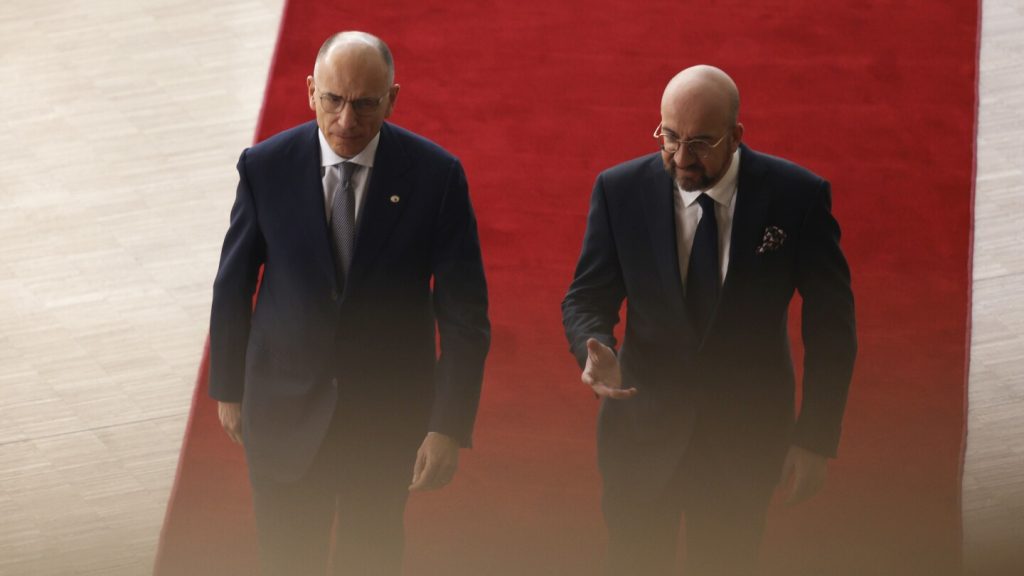European Union leaders gathered in Brussels to discuss a new “European Competitiveness Deal” aimed at closing the economic production gap with China and the United States. The EU’s share of the global economy has decreased over the past three decades, and leaders are concerned about falling behind in key industries such as renewable energy and green technology. Former European Central Bank president Mario Draghi highlighted the need for the EU to focus on external competitiveness and ensure its long-term prosperity and leadership on the global stage.
During the summit, leaders considered proposals to subsidize industrial companies in response to the U.S. and China’s support for domestic production through subsidies and tax breaks. The EU fears losing industrial jobs to these countries and falling further behind in economic performance. Enrico Letta’s report emphasized the urgency of addressing the growing gap between the EU and the U.S., with GDP per capita in the U.S. increasing significantly more than in Europe. EU rules currently restrict member governments’ aid to companies to avoid distorting business competition, but Letta suggested redirecting some aid for EU-wide projects.
In addition to subsidizing industrial companies, the EU is looking to integrate its financial markets to allow companies to raise money for renewable energy projects from stock, bond, and venture capital investors. This move would help reduce reliance on bank lending and boost investment in strategic sectors within the bloc. The EU aims to increase the capacities of the European Investment Bank to invest in key industries and create a more balanced financial market that utilizes European citizens’ savings. French President Emmanuel Macron supported these efforts, highlighting the need for European savings to stay within the EU and support the region’s economic base.
The EU leaders acknowledge the need for more investment, particularly in digital and advanced technologies where the U.S. and China currently outpace Europe. There is a call for a clear strategy to address the challenges posed by these economic rivals, especially in key industries like defense and technology. The proposals put forth in the summit aim to boost Europe’s global competitiveness and ensure its strategic sovereignty in the face of evolving geopolitical challenges. The EU is committed to taking decisive action to safeguard its economic prosperity and maintain its position as a global leader.


